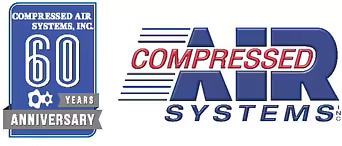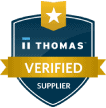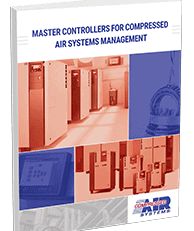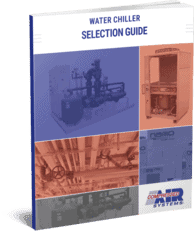Choosing What’s Right For You: Reciprocating vs. Rotary Screw Compressors
For many businesses in a wide assortment of industries, compressed air plays a crucial role in day-to-day operations. While many business owners recognize the need and importance of air compressors, they sometimes find it difficult to decide which type of air compressor would work best for them.
The two most common types of air compressors are reciprocating and rotary screw compressors, and each has its own unique advantages. Knowing the pros and cons of each type can help business owners make the right decision about which compressor will best fit their application requirements.
Longevity

If you’re looking for an air compressor that will have a long lifespan, the reciprocating compressor may be a more appealing choice for you. This particular type of compressor is known for its longevity. When properly cared for and maintained, the reciprocating unit has the potential to last two-to-five times longer than a rotary unit. Therefore, while the upfront costs of a reciprocating compressor may be high, it’ll pay for itself over time.
Initial Installation
Reciprocating compressors are also known for their easy installation, which often means anchoring and securing the compressor to the floor to prevent it from falling or being knocked or pulled over. These types of compressors are typically used with an air receiver, which stores compressed air and helps to reduce the overall loaded run time of the compressor. However, the unbalanced forces and heavy weight associated with reciprocating compressors often translate into higher installation costs than rotary units. The need for a weighted base and a solid foundation can also contribute to increased costs.
 Conversely, rotary compressors are designed to stand by themselves, though some units may be mounted on top of an air receiver. Some packaged rotary compressors can also be mounted using simple floor anchors. While a receiver is not always necessary to use with this type of compressor––unlike the reciprocating unit––the use of one can help to improve the control air signal being transmitted back to the compressor’s controller, which grants greater air flow consistency. This consistency is a primary benefit of the rotary screw, offering a more cost-effective solution for applications that need to maintain steady, continuous volumes of compressed air.
Conversely, rotary compressors are designed to stand by themselves, though some units may be mounted on top of an air receiver. Some packaged rotary compressors can also be mounted using simple floor anchors. While a receiver is not always necessary to use with this type of compressor––unlike the reciprocating unit––the use of one can help to improve the control air signal being transmitted back to the compressor’s controller, which grants greater air flow consistency. This consistency is a primary benefit of the rotary screw, offering a more cost-effective solution for applications that need to maintain steady, continuous volumes of compressed air.
Lubrication Needs
The two types of air compressors have different lubrication needs, which impact cost differences between the two options. While rotary compressors are usually oil-free/non-lubricated units, reciprocating air compressors can be either oil/lubricated or oil-free/non-lubricated,
Initially, a non-lubricated compressor costs approximately 10-15% more to install. Once in operation, however, power consumption costs and efficiency levels are similar to those associated with lubricated compressors. Maintenance can be the real cost differentiator, however. It may cost nearly four times as much to maintain a non-lubricated compressor over a standard lubricated compressor.
Learn More
Both types of compressors have their own unique advantages based on your intended application. The reciprocating compressor has grown in popularity because it has proven itself to be dependable, long-lasting, and hard-working. Ongoing technological advancements will only further enhance air quality and lengthen maintenance and repair windows. The reciprocating compressor often the best choice for applications that compress gases other than air, and that exceed or fall below the 100–150 psig range.
Meanwhile, rotary compressors are considered tried and true by many. Their portability and versatility make them useful for a wide range of common applications. Our experts can help you decide which air compressor is best for your needs.
At Compressed Air Systems, Inc., we specialize in providing high-quality compressed air solutions for our clients across industries and sectors. Since 1980, we’ve been committed to working toward our goal: To build the most efficient, most reliable, highest performing, easy-to-use air compressors anywhere. To lean more about our our line of rotary and reciprocating air compressors, contact us today! While you’re there, you can also learn more about our new rotary screw-powered VMAC Raptair G-30!









